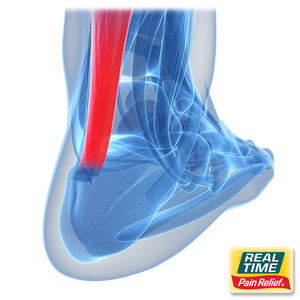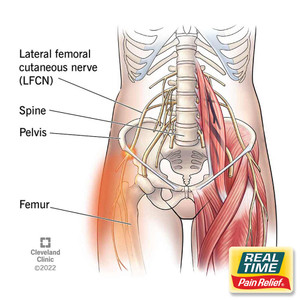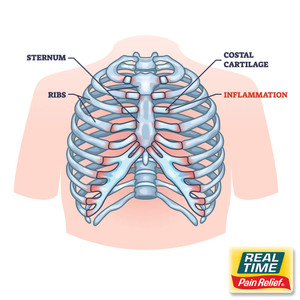Best Ways to Strengthen Your Core
14th Feb 2023
Who doesn’t want a fit-looking mid-section? But having a strong core is not just about having six-pack abs. Your core is responsible for spinal stability and more. Although it may take a little time and sweat, you can strengthen your core and gain the benefits.
Benefits of a Strong Core
A strong core is beneficial for your overall health for several reasons, including the following:
Helps You Maintain Good Posture
If your core is strong, it helps your posture sitting, standing, and walking. Poor posture can lead to pain in the shoulders, neck, and back.
Stabilizes the Spine
By stabilizing your spine, your core muscles help you maintain proper balance.
May Improve Sports Performance
Performance in some sports, such as tennis, baseball, and golf, can improve with a strong core.
Decreases the Risk of Back Problems
Strong abdominal muscles help protect your back from injury and may reduce your risk of lower back problems.
Muscles that Make Up Your Core
Your core is your midsection, which involves the muscles that allow you to bend forward, backward, and sideways. The core muscles include:
- Rectus abdominis
- Erector spinae
- Obliques
- Transverse abdominis
- Multifidus
- Keeping the core muscles strong provides support for your body and improves the overall level of fitness. An optional core strengthening program works all the muscles of the core.
5 Best Core Exercises
If you think about abdominal exercises, you might consider sit-ups as the primary way to work your core. But a sit-up may not be your best bet. Below are some of the best exercises to strengthen your core.
#1) Plank
A plank works your entire core. To perform:
- Start on all fours with your knees below your hips and hands below the shoulders.
- Straighten your legs behind you and make sure your hips are not up too high. Your body should be in a straight alignment.
- Hold the position for 20 seconds and repeat for a few sets.
#2) Bicycle
The bicycle exercise works your abdominal muscles with a focus on the obliques. To perform:
- Start on your back with your knees bent and feet on the floor. Place your hands behind your head and elbows pointing outward.
- Bend your left knee towards your chest and extend the right leg.
- At the same time, lift your shoulders off the ground and bring your right elbow towards the left knee, rotating your torso.
- As soon as your knee touches your elbow, simultaneously switch legs.
- Keep switching legs going shoulder to the opposite knee for 30 seconds.
#3) Reverse Crunch
The reverse crunch is a good exercise to work your lower abdominal muscles. Do the following to perform:
- Lie on your back with bent knees.
- Lift your feet up in the air making your quads perpendicular to the floor.
- Engage your core and lift your hips off the ground as you pull your knees into the chest.
- Hold the crunch for a few seconds before lowering your hips.
#4) Mountain Climbers
Mountain climbers work your entire core while adding a little cardio exercise to get your heart rate up. To perform:
- Start in a plank position.
- Bring your left knee into your chest while keeping your hips down and back straight.
- Return to the starting position and bring the right knee into the chest.
- Quickly alternate which leg comes into the chest.
- Start with 30 seconds of mountain climbers and work up.
#5) Back Extension
Your back muscles are also part of the core. There are different ways to do a back extension. To perform a simple extension on the floor, do the following:
- Lie on the ground on your stomach with your legs straight and elbows on the ground.
- Slowly lift your upper back off the ground while pressing your hips to the floor. Your head and neck should remain neutral.
- Hold for about 10 seconds and release back down to your starting position.
- Repeat a few times.
Bonus Tips to Strengthen Your Core
If you’re trying to strengthen your core, there are a few things to keep in mind to get the best results and avoid injury. Consider the following:
Start Slowly
Pick a couple of the exercises above and start by performing the exercises for about 20 to 30 seconds. Gradually add a few more exercises and increase the number of sets you do. Eventually, try to do three sets of 30 seconds of all the exercises above.
Pay Attention to Form
Pay attention to each exercise and avoid arching your back or using poor form. If you are unsure how to perform one of the exercises, talk to a trainer to make sure you are doing it correctly.
Listen to Your Body
If you feel sudden pain when you are doing any core strengthening exercises, stop what you are doing. If the pain persists, talk with your doctor.
Treat Soreness
Similar to other muscles, your core muscles can become sore after working out. If your abdominal muscles are aching, consider using a pain-relieving bath bomb. Look for a bath bomb with ingredients, such as arnica, turmeric, Epsom salt, and peppermint, to ease muscle soreness and decrease stiffness. Fill the tub, add the bath bomb to the water, and soak for about 15 minutes.
For over 20 years, families across the U.S. have turned to Real Time’s lotions and creams for PAIN RELIEF YOU CAN TRUST®. From Lifestyle Essentials, through our Nujuvena line, to Pain Relief Formulas, Real Time has you covered.
Sources:





